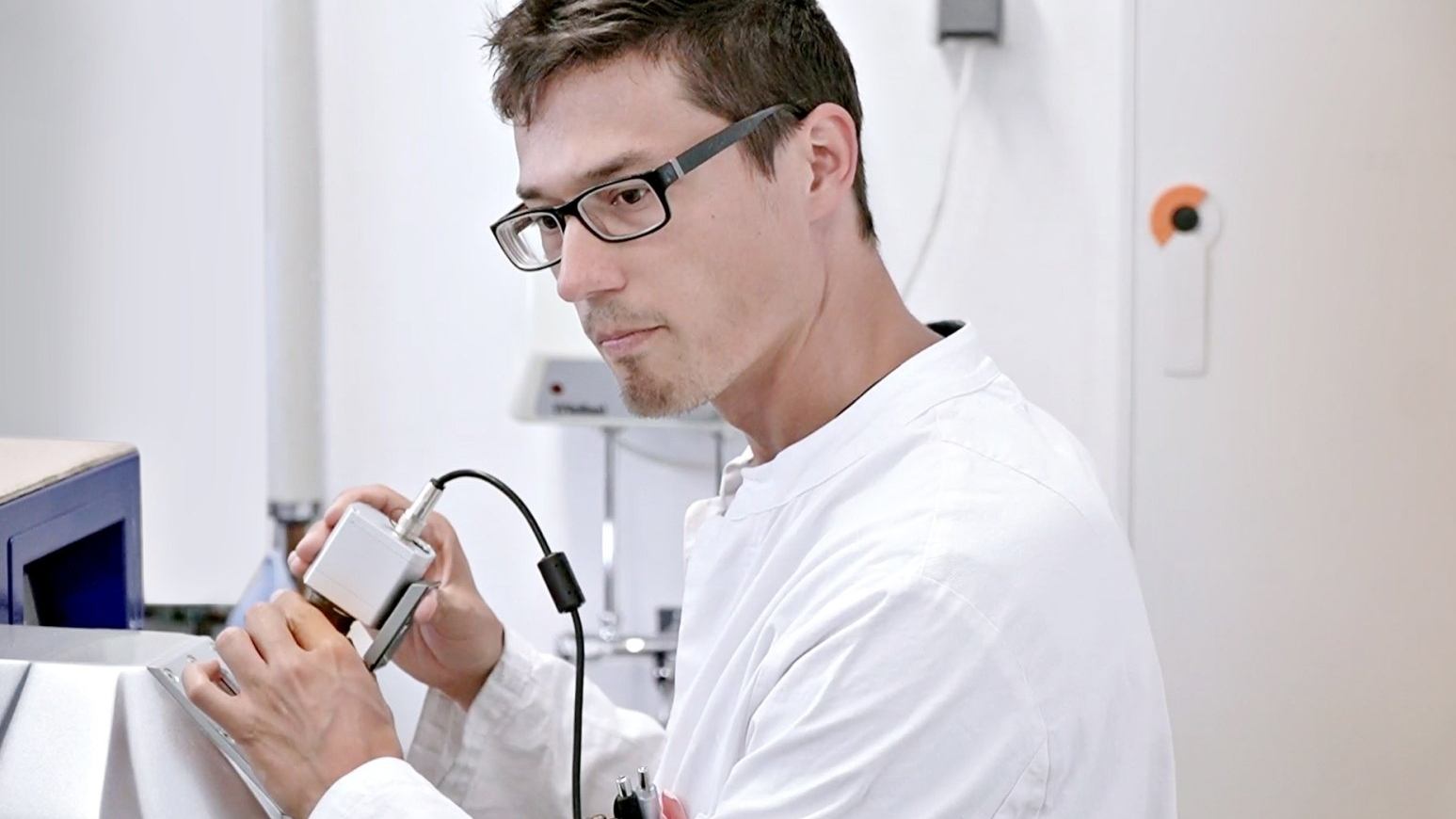For the first time in the almost one hundred year history of the Gmünd Research Institute, the general meeting did not take place in the Institute, but in front of the screens. The Platinum Hall remained empty and the guests met in the video conference. This was also a novelty for Institute Director Dr. Andreas Zielonka: "It's amazing how quickly people got used to the new form of communication. But of course we miss the face-to-face discussions during coffee breaks, the direct exchange with partners from industry and research." The two-day fem Summer Academy with lectures, workshops and expert discussions should have taken place for the first time in June - but it fell victim to the coronavirus crisis. "The current crisis has not left us completely unscathed. But we are very pleased that there has not been a single case of illness at the fem. And we will definitely make up for the summer academy," says Zielonka.
The institute implemented strict hygiene rules, physical distancing, mobile working and two-shift operation at an early stage. However, this did not prevent the order situation from deteriorating. As a business-oriented research institute, it goes without saying that it is not independent of developments in the companies. If their order volume shrinks, then the budget for contract research and services also decreases, explains the fem institute director. "If one pillar weakens, the other must be strengthened. We have therefore invested a lot of time and energy in new research projects, and the effort has paid off," says Zielonka happily. Numerous new projects with a total volume of around 3 million euros have been approved in recent weeks and further projects are currently being assessed. This is undoubtedly very good for the institute and its almost ninety employees, but the significance of these projects for technology transfer to the regional economy in such important future fields as energy technology, digitization and recycling is even greater.
In two projects funded by the German Federal Environmental Foundation, the Analytics department is working until the end of 2021 on methods for recovering valuable neodymium magnets from electric drives, which have so far been largely lost in old appliance scrap, and on the photovoltaic-powered production of drinking water through seawater desalination. "Drinking water scarcity is already a problem today and will become more acute in the future," says the new head of department Dr. Martin Aschenbrenner, who is in charge of the project: "We hope to develop a marketable solution together with our industrial partner."
In the field of additive manufacturing or selective laser melting (SLM) of metallic materials, the fem has been making a continuous contribution to the future topic of digitalized manufacturing processes for almost ten years. In two projects supported by the Federal Ministry of Economics as part of the Industrial Collective Research (IGF), the aim is to gain a more thorough and precise understanding of the laser melting process. Fundamental questions and problems relating to the processability of various materials are being investigated. The second project is researching the production of medical bone implants from biocompatible zinc alloys and prototypes for zinc die casting. The more powerful SLM system installed at the beginning of July and the atomizer, with which it is possible to produce metal powder from individual alloys, will be used.
Finally, two other projects funded by the Central Innovation Program for SMEs (ZIM) focus on the topic of urban mobility, or more precisely: the development of a hydrogen bicycle prototype. The aim of the project, which involves partners from research, the bicycle industry and former professional cyclist, multiple German champion and world cyclocross champion Mike Kluge, is to develop a recyclable hydrogen pressure tank and a lightweight, very powerful and robust fuel cell module. The tank and fuel cell are designed in such a way that they can be integrated into a bicycle frame, but can also be used in scooters or vans. The advantage compared to lithium-ion batteries: significantly less weight, very fast charging times and long ranges with consistently high performance. "There are a whole series of tricky problems to solve, but we are very confident that we will succeed in taking a big step in the right direction," emphasizes Dr. Andreas Zielonka. "It is important for us to show with this project that hydrogen can make a significant contribution to the storage and use of renewable energy."


